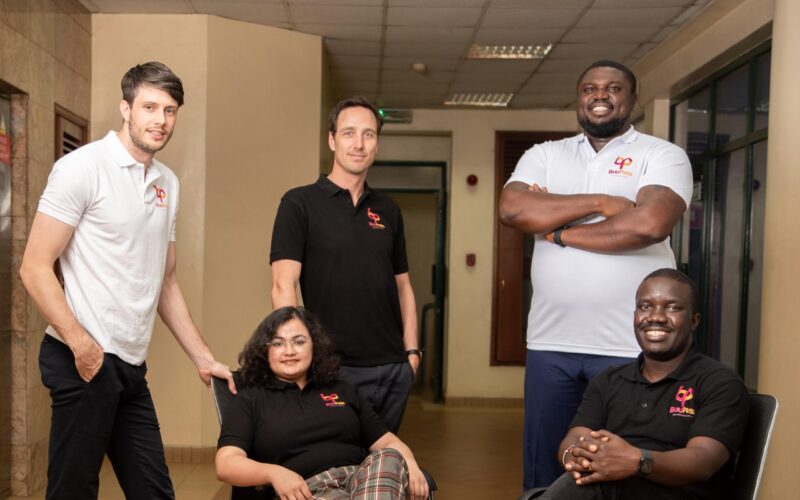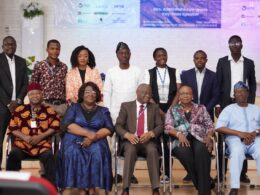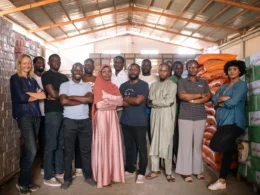Nigeria’s Federal Ministry of Education has announced a sweeping partnership with Amazon Web Services (AWS) Academy that could reshape the country’s educational landscape and position it as a major player in Africa’s digital economy. The initiative, which offers free cloud computing training and internationally recognized certifications to students and educators nationwide, represents one of the continent’s most ambitious attempts to bridge the skills gap in emerging technologies.
Dr. Maruf Olatunji Alausa, Nigeria’s Minister of Education, unveiled the program as part of the government’s Renewed Hope Agenda and the Nigeria Education Sector Renewal Initiative (NESRI). With Nigeria’s population exceeding 200 million and youth unemployment remaining a persistent challenge, the timing of this digital skills initiative could prove transformative for Africa’s largest economy.
Addressing Africa’s Digital Skills Crisis
The partnership comes at a critical juncture for Nigeria and the broader African continent. According to recent industry reports, Africa faces a shortage of over 4 million skilled technology workers, with cloud computing and machine learning expertise particularly scarce. Nigeria, as the continent’s most populous nation and largest economy, has struggled to keep pace with global digital transformation despite its vibrant tech startup ecosystem.
“This initiative is not only timely but transformative,” said Minister Alausa during the announcement. “It prepares Nigerian graduates and lecturers to compete in an increasingly global digital economy and demonstrates our commitment to ensuring no student or educator is left behind in the digital revolution.”
The program’s scope is unprecedented in the region. The pilot phase has successfully onboarded coordinators from 43 federal universities and polytechnics, with plans to extend coverage to all federal, state, and private tertiary institutions across the country – including universities, polytechnics, and colleges of education.
Innovative Funding Model Removes Financial Barriers
Perhaps most significantly, the initiative eliminates cost as a barrier to participation. The Federal Ministry of Education will sponsor 50% of certification costs, with AWS covering the remaining 50%, making the training and internationally recognized certifications completely free for participants.
This funding model addresses a key challenge in African education: the high cost of quality technical training. By removing financial barriers, the program could potentially reach students from all socioeconomic backgrounds, addressing inequality in access to digital skills education.
Industry experts view this cost-sharing arrangement as a blueprint for other African nations seeking to modernize their educational systems. “The funding model is particularly innovative,” notes Dr. Sarah Johnson, a digital education researcher at the University of Cambridge. “It demonstrates how public-private partnerships can make high-quality technical education accessible at scale.”
Strategic Implementation Across Institution Types
The program’s implementation strategy reflects careful consideration of Nigeria’s diverse educational landscape. Vice Chancellors, Provosts, and Rectors are being asked to nominate coordinators who will serve as official liaisons between their institutions, AWS, and the Ministry. These coordinators will be responsible for nominating lecturers, who will then enroll their students for training.
This multilayered approach ensures institutional buy-in while maintaining quality control. The coordinators will undergo specialized training to understand AWS tools and methodologies, creating a network of skilled educators who can sustain the program long-term.
State and private tertiary institutions can register their coordinators through an official portal now available on the Ministry’s website, with the second phase of onboarding beginning in the coming weeks.
Global Implications for Tech Talent Development
The initiative’s potential impact extends beyond Nigeria’s borders. As global technology companies increasingly look to Africa for talent, Nigeria’s investment in cloud computing skills could position the country as a preferred destination for tech outsourcing and innovation.
Amazon’s decision to partner with Nigeria reflects the company’s broader strategy in Africa. AWS has been expanding its presence across the continent, with data centers and educational initiatives in multiple countries. The Nigeria partnership represents one of AWS’s largest educational commitments in Africa to date.
“This partnership with Nigeria’s Federal Ministry of Education aligns with our mission to democratize access to cloud computing education,” said an AWS spokesperson. “Nigeria’s young population and growing technology sector make it an ideal partner for this type of large-scale skills development initiative.”
Economic Development Through Education
The program directly addresses Nigeria’s economic development challenges. Despite being Africa’s largest economy, Nigeria struggles with high unemployment rates, particularly among young people. The country’s tech sector has shown remarkable growth, with startups like Flutterwave and Paystack achieving unicorn status, but the broader economy has yet to fully capitalize on digital transformation opportunities.
By focusing on cloud computing, machine learning, and emerging technologies, the AWS Academy partnership targets skills that are increasingly in demand across industries. This could help Nigeria develop a more diversified economy less dependent on oil revenues.
Economic analysts suggest the program could generate significant returns on investment. “If successfully implemented, this initiative could create a skilled workforce that attracts foreign investment and supports the growth of Nigeria’s technology sector,” says Dr. Michael Adebayo, an economist at the University of Lagos.
Challenges and Opportunities Ahead
While the program’s ambitions are impressive, implementation will face several challenges. Nigeria’s educational infrastructure varies significantly across regions, with rural areas often lacking reliable internet connectivity. The program’s success will depend on addressing these infrastructure gaps while maintaining quality standards across diverse institutional settings.
Additionally, the program must compete for students’ attention in a challenging economic environment where immediate employment opportunities often take precedence over longer-term skill development.
However, the initiative’s inclusive approach – covering federal, state, and private institutions – suggests careful planning to address these challenges. The government’s commitment to funding 50% of certification costs demonstrates genuine political will behind the initiative.
Looking Forward: A Model for Continental Development
If successful, Nigeria’s AWS Academy partnership could serve as a model for other African nations seeking to modernize their educational systems and develop skilled workforces. The program’s emphasis on practical, industry-relevant skills aligns with global trends toward competency-based education.
The initiative also represents a shift in how African governments approach technology education – moving from theoretical computer science programs toward practical, certification-based training that directly addresses industry needs.
As Nigeria prepares for the second phase of onboarding, the program’s impact will be closely watched by educators, policymakers, and technology leaders across Africa. Success could accelerate similar initiatives throughout the continent, potentially transforming Africa’s position in the global digital economy.
For now, eligible institutions are being urged to act quickly to secure placement in what Minister Alausa describes as “a pioneering initiative that promises to redefine the digital future of Nigerian education.”













Comments 1